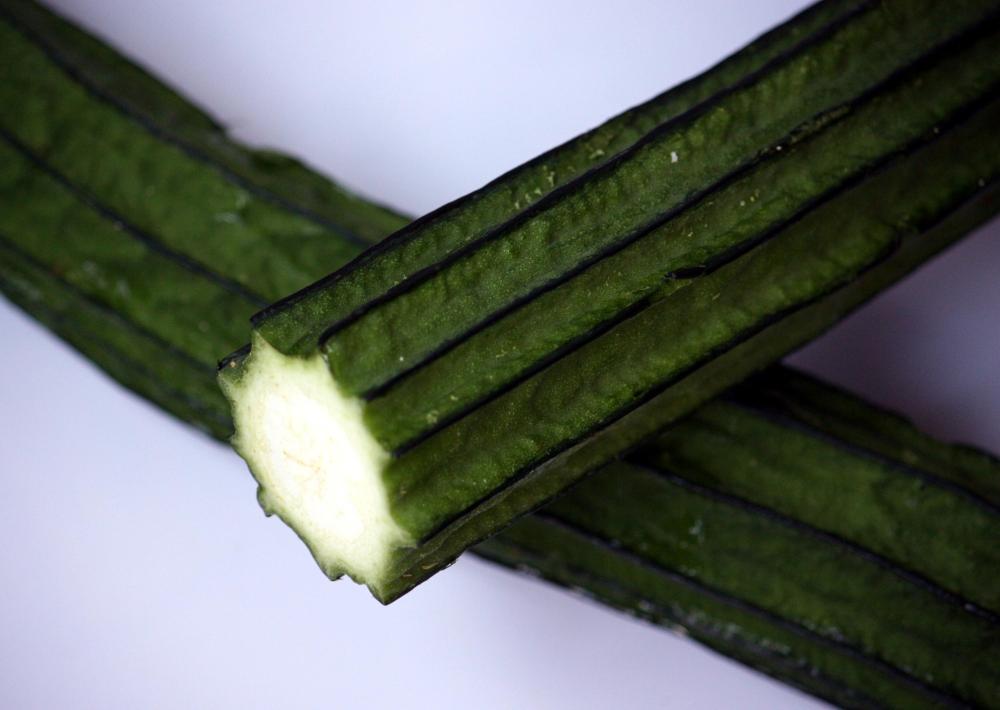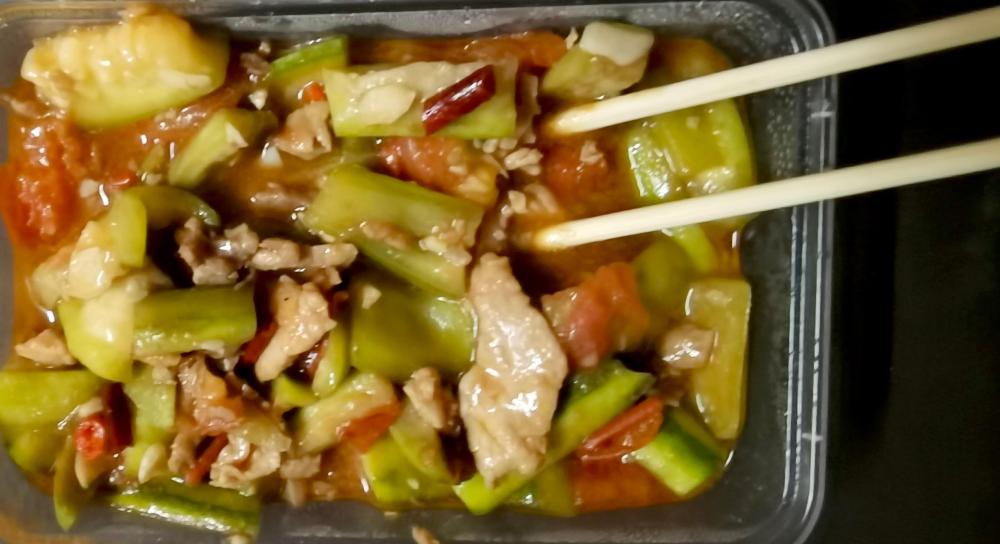Tonight’s dinner is a simple one, but its name isn’t. And you may have one of its prime ingredients, but not in the kitchen. Instead you may find it in your bathroom.
That ingredient is known in English as luffa, loofah, angled luffa, Chinese okra, dish cloth gourd, ridged gourd, sponge gourd, towel gourd, vegetable gourd, strainer vine, ribbed loofah, silky gourd, ridged gourd, or silk gourd. In Latin terms it is Luffa acutangula or Luffa aegyptiaca, two closely related species. In Mandarin Chinese, it is 丝瓜 (sī guā); in Cantonese si1 gwaa1). It is a vine gourd and is related to the cucumber. The name loofah, however you spell it, is taken from the Egyptian-Arabic name لوف (lūf).
Loofah is the thing you may use in the shower as a sponge or exfoliant but these are the dried husks of mature specimens. When they are young, they are a popular vegetable in China, Japan, India, Nepal, Bhutan, Bangladesh and in Vietnam where it is known as mướp hương. In Japan, it is へちま (hechima).
They are mild flavoured and used in soups or stir-fried with pork as in my dinner, 丝瓜炒肉片 (sī guā chǎo ròu piàn), stir fried loofah with sliced pork. It is not recommended that you eat it in the shower.







